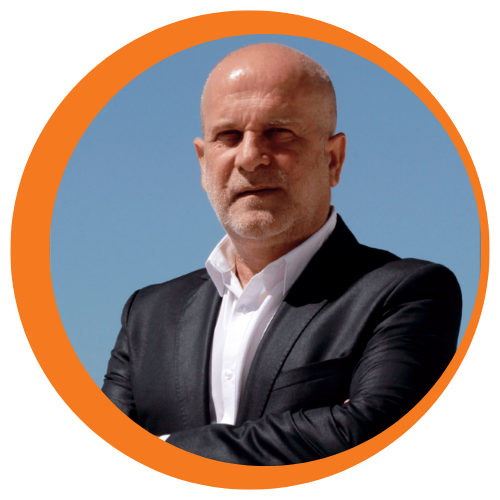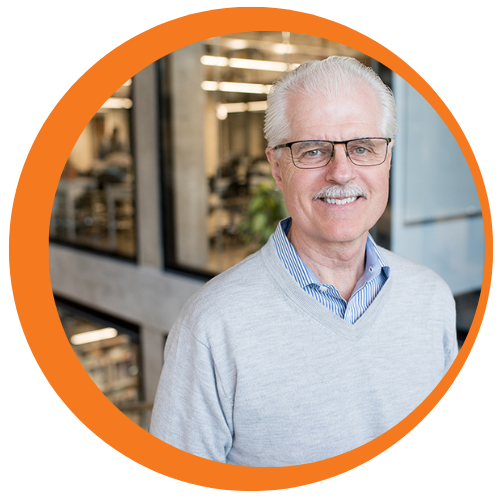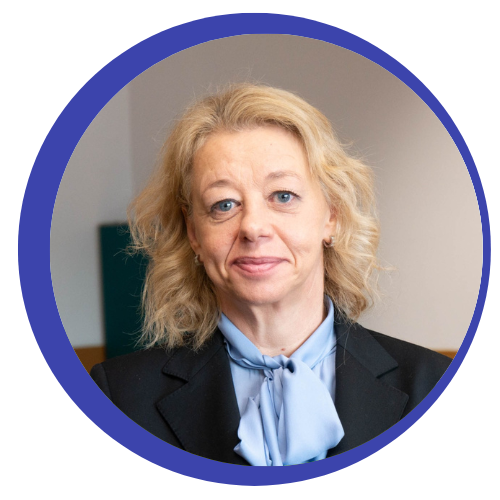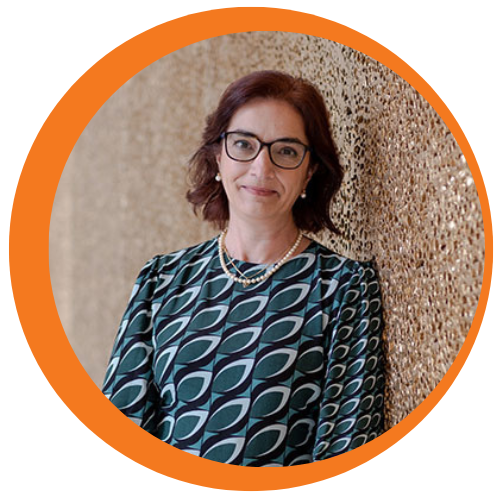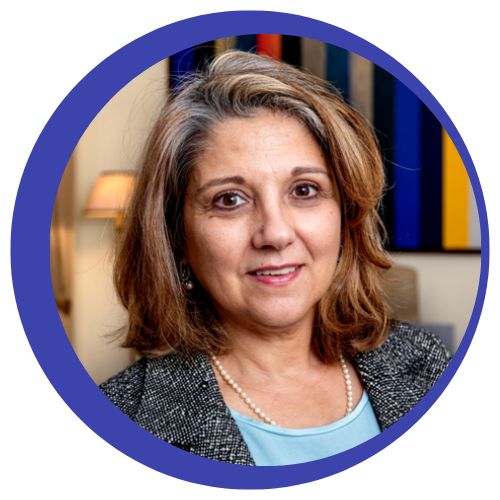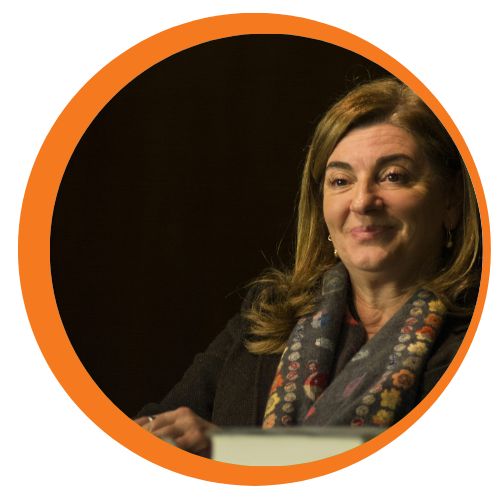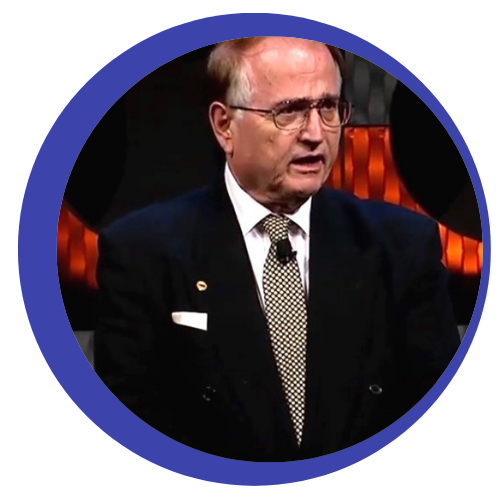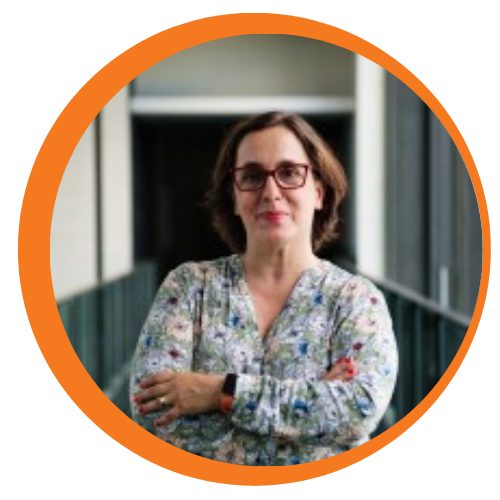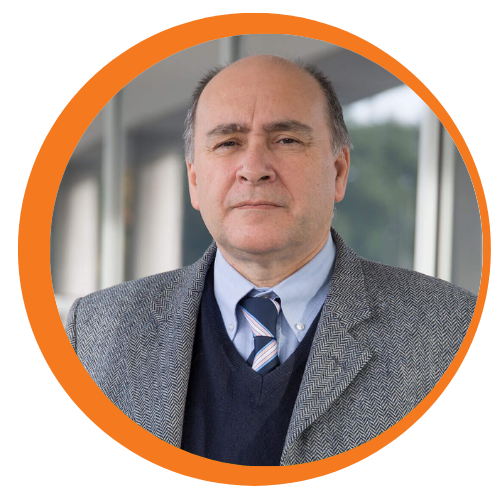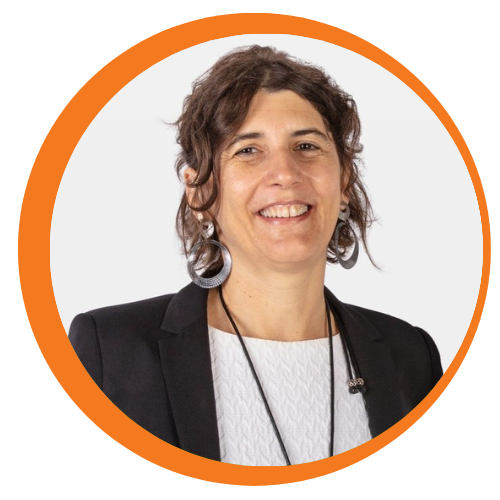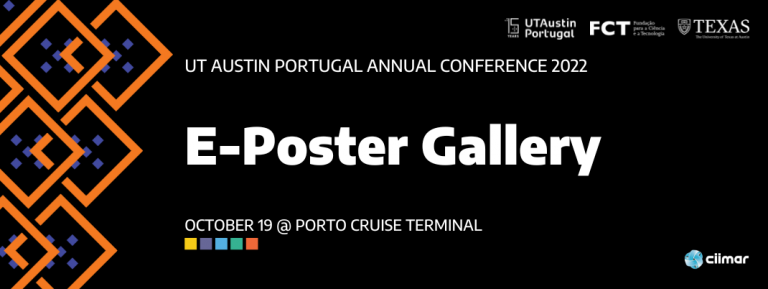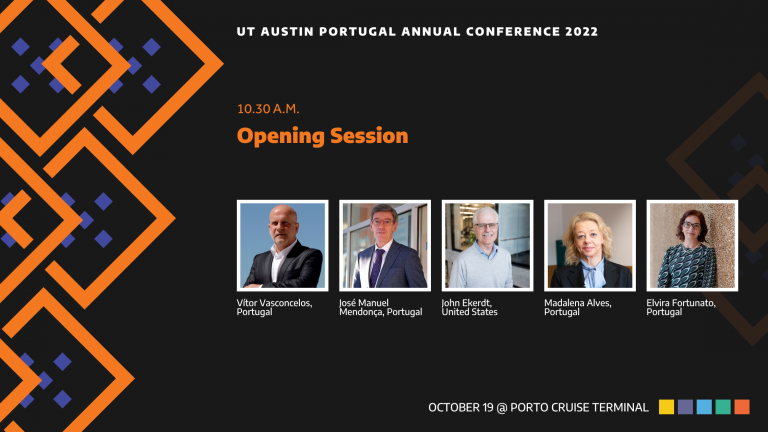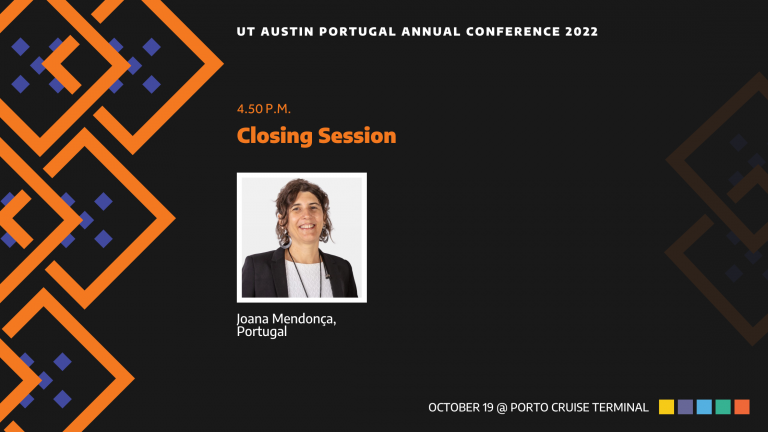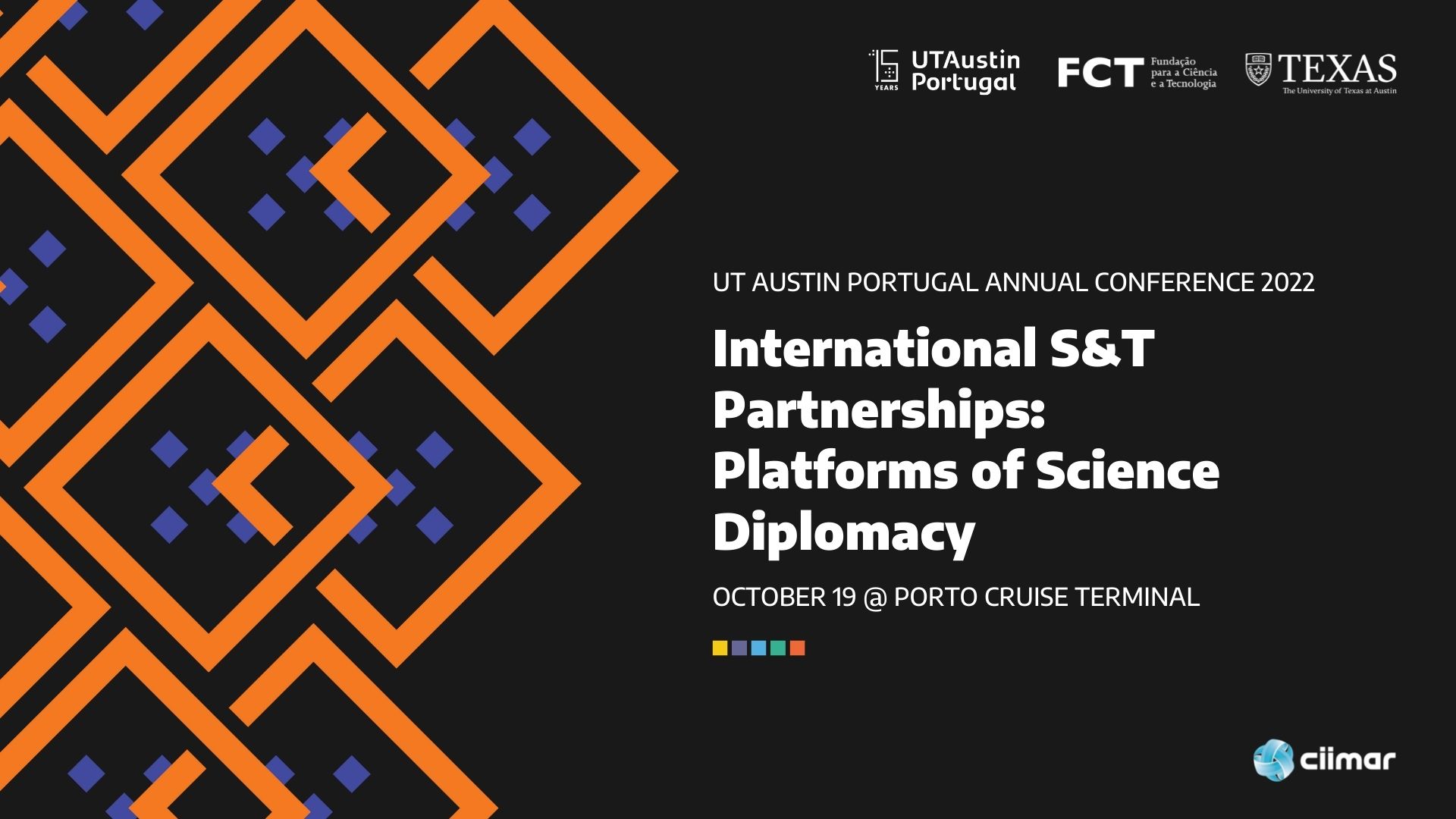 October 19, 2022 – Porto Cruise Terminal, Matosinhos
October 19, 2022 – Porto Cruise Terminal, Matosinhos
The UT Austin Portugal Program Annual Conference is the Program’s largest knowledge-sharing and networking event that intends to mobilize its community together with world-class speakers across academia and industry from the Partnership’s geographical scope and beyond.
The Program’s largest transatlantic event is coming back in October with an onsite format; and because this year, the program turns 15 years old, we are putting together a lineup to acknowledge this milestone, take stock of our journey and envision the Partnership’s future. To this end, we count on each and every one of you to make this event a celebration of Science and Technology as tools for sustained international cooperation, global solidarity and peacebuilding.
IMPORTANT INFORMATION (Updated on October 3, 2022): We are no longer confirming registration requests for the Annual Conference as all available seats have been taken. Nevertheless, you may still complete and submit this form, and your request will be placed on a waiting list. We will let you know if we can accommodate your request in the meantime. The Local Organizing Team appreciates your understanding.

